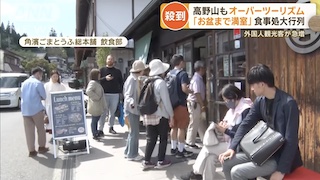Aug 02 (Kyodo) - As the rainy season ends, Japan is entering summer without its typical scenes of festivals, fireworks and open beaches this year as the novel coronavirus continues to spread in the country.
Shonan and other famous beaches in Kanagawa Prefecture, near Tokyo, are without huts or lifeguards as people have been advised to stay away amid strict coronavirus control measures.
An association representing around 40 beach hut operators in Zushi in the prefecture said some members cannot make ends meet without opening their huts, while they continue to patrol and clean up as people are still visiting beaches that are not off-limits.
Even those visiting beaches are taking anti-virus measures, including maintaining social distancing and wearing face masks.
"I missed the Sun," said a woman in her 70s living in Fujisawa as she visited a beach in the Kanagawa Prefecture city with her son and his family for the first time this year.
Wearing a face mask and sunglasses, the woman said she enjoys watching her grandchild playing in the waves.
In northeastern Japan, the Omagari firework festival in Daisen, Akita Prefecture, which attracts 700,000 visitors every year, was canceled for the first time in 73 years, leaving many firework balls in stock.








